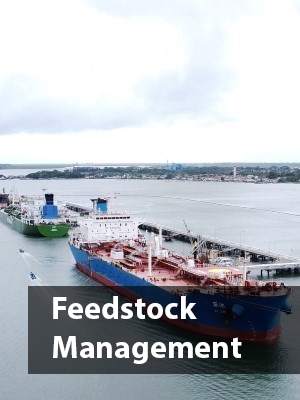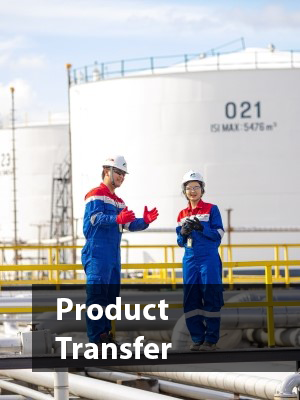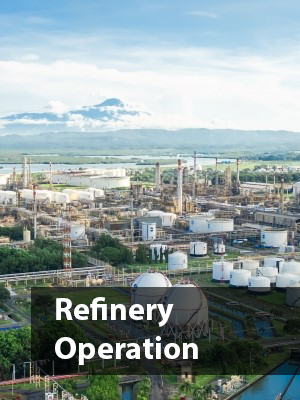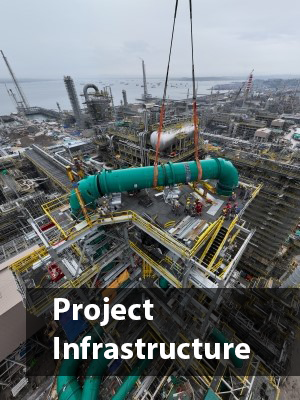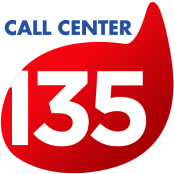Our Business
Feedstock Management:
Kilang Pertamina Internasional processes crude Oil and Condensate into refinery products, with supplies sourced from domestic crude Oil and Condensate, as well as from the international market to meet domestic supply shortages.
In crude oil procurement, KPI uses the Crude Acceptance Matrix (CAM) tool to ensure that the crude oil processed meets the technical and operational requirements of the refinery, including its impact on the quality of the final product, operational efficiency, reliability and economics of the refinery.
Crude Oil and Condensate procurement is obtained through the Government, Pertamina's Upstream subsidiaries, and other Contractor Production Sharing Contract offers. Meanwhile, crude oil procurement from the international market is obtained through term and/or spot scheme procurement.
KPI Refinery Unit processes blended crude, so in the Implementation of the technical evaluation of new crude, CAM is used as a basis for determining the max percentage of certain crude Processing.
The limitations on CAM are not only on Whole Crude but there are also limitations on each Stream from Straight Run Product from the Primary Unit (Crude Distillation Unit - CDU and Heavy Vacuum Unit - HVU). Because each stream will be limited by the Secondary unit (Platforming, Diesel treater, RFCC, HCU etc.) and the specifications of the finished product (gasoline, Avtur, Solar etc.).
Below are some parameters that are included as limitations in CAM:
- Whole Crude
- Sulfur: considering the maximum capacity of a unit in preventing corrosion effects and showing the distribution of sulfur content and acidity levels (TAN) in the product
- TAN: considering the maximum capacity of a unit in preventing corrosion effects and showing the distribution of sulfur content and acidity levels (TAN) in the product
- Salt Content: considering the maximum capacity of a unit to prevent corrosion effects in the overhead section of the crude oil distillation column (CDU)
- Mercury: prevention of potential environmental pollution by considering the capacity of the waste processing unit
- Pour Point: adjusting the capacity of the crude Oil reception facility at the refinery to ensure that there is no blockage in the transfer pipe
- Light Naphta: related to the Ln-Isomerization Unit and Blending of Pertalite / Pertamax products
- Sulfur: considering the operational limits of the NHT unit in maintaining the performance of the Ln-Isom catalyst so that it does not decrease
- Nitrogen: considering the operational limits of the NHT unit in maintaining the performance of the Ln-Isom catalyst so that it does not decrease
- Heavy Naphta: limitations of the NHT unit and Platforming in HOMC production
- Sulfur: considering the limitations of the process capability in the NHT unit in preventing a decrease in catalyst performance in the Platforming unit
- Nitrogen: considering the limitations of the process capability in the NHT unit in preventing a decrease in catalyst performance in the Platforming unit
- N+2A: the main parameter in the Platforming unit feed to achieve the targeted Octane Number
- Kerosene: limitations in Avtur production (RU III, RU IV and RU VI)
- Freezing Point: adjusting to Avtur product specifications
- Naphtelene: adjusting the ability of the Kero Treater Unit to reduce these parameters to meet Avtur product specifications
- Smoke Point: adjusting the ability of the Kero Treater Unit to reduce these parameters to meet Avtur product specifications
- Mercaptan: adjusting the ability of the Kero Treater Unit to reduce these parameters to meet Avtur product specifications
- Sulfur: adjusting the ability of the Kero Treater Unit to reduce these parameters to meet Avtur product specifications
- Gasoil: limitations in Solar production
- CCI: meeting the standard specifications that have been set for solar products
- Sulfur: considering the limitations of the unit's ability to prevent corrosion effects and related to solar product specifications
- TAN: considering the limitations of the unit's ability to prevent corrosion effects and related to solar product specifications
- Long Residue: as feed for RFCC Units (RU IV and RU VI)
- Sulfur: considering the limitations of the unit's ability to prevent corrosion effects and related to product specifications from the RFCC unit
- TAN: considering the limitations of the unit's ability to prevent corrosion effects
- UOP-K: parameters that indicate how much paraffin is in the RFCC unit's raw materials
- Nitrogen: considering the maximum contaminant limits so that the RFCC catalyst continues to function optimally
- Asphaltene: considering the limitations to prevent potential plugging in the bottom system area of the RFCC main column
- MCRT: RFCC unit performance parameters related to heat balance aspects
- Long Residue: as blending for MFO products
- Sulfur: considering the limitations of the unit's ability to prevent corrosion effects and related to MFO product specifications
- TAN: considering the limitations of the unit's ability to prevent corrosion effects
- HVGO: as a feed for FCC Unit (RU III)
- Sulfur: considering the limitations of the unit's ability to prevent corrosion effects and related to the product specifications of the FCC unit
- CCR: RFCC unit performance parameters related to the heat balance aspect
- Nitrogen: considering the maximum contaminant limits so that the FCC catalyst continues to function optimally
- HVGO: as a feed for HCU Unit (RU II and RU V)
- Sulfur: considering the limitations of the unit's ability to prevent corrosion effects, maintaining catalyst performance
- CCR: considering important limitations to keep the HCU catalyst active and working optimally
- Nitrogen: considering important limitations to keep the HCU catalyst active and working optimally
- Asphaltene: considering important limitations to keep the HCU catalyst active and working optimally
- Total Metal: considering important limitations to keep the HCU catalyst active and working optimally
Crude Acceptance Matrix Table:
Disclaimer: CAM for each Refinery Unit is not limited to Whole Crude After Blended
Kilang Pertamina Internasional (KPI) procures feedstock materials (Crude Oil/Condensate/Refinery Products) referring to the established Crude Acceptance Matrix (CAM). In the procurement process, companies registered in the List of Selected Business Partners of Kilang Pertamina Internasional will be invited to participate in the procurement process.
- Counterpart Confirmation of Crude List Supply to KPI (unduh disini)
- KPI Crude List (unduh disini)
To be included in the Selected Business Partner List of Kilang Pertamina Internasional, companies with the capability to supply the feedstock (Crude Oil/Condensate/Refinery Products) required by the refinery must undergo a registration process with the following steps:
- Create an account to access the registration portal
- Provision to complete information and documents on the registration portal
- Review and evaluation process by the KPI Registration Team. In the event that any documents or information are incomplete, the company will be notified to provide the necessary details
- Submission of the registration results to the company
The requirements for registration to become KPI Selected Business Partners are as follows:
- Company Profile
- KYC Form
- Integrity Pact Letter
- Statement Letter
- Sample of Transaction Document for Refinery Product and/or crude oil (BL, Invoice & Contract)
- Recommendation Letter from other company which have historical transaction with the company
- PIC contacts including names, emails, phone and fax number to be invited for future transaction and/or tender process
- Sanction Declaration Letter
- Certificate of Incorporation
- Article of Association (including the latest amendment, if any)
- List of Company Committee
- List of Shareholder and Capital Share
- Register of Commerce
- List of Authorized Signatories (including signature speciments and copy ID/passport)
- Last 3 Years Audited Financial Statement
- Ultimate Beneficial Owners (UBO) Form Declaration
For further information regarding registration portal and registration process, please contact pg@pertamina.com and/or pg.kpi@pertamina.com.
Product Transfer
In facing market challenges, PT Kilang Pertamina Internasional implements a sales strategy with a focus on sustainable performance growth and the development of green products. Sales of KPI's main products are carried out to the Commercial & Trading Group Business, in this case PT Pertamina Patra Niaga.
In 2023, PT Kilang Pertamina Internasional implemented a sales optimization strategy including the following:
- Joint marketing Ocean Going. PT Kilang Pertamina Internasional as a bunker product producer collaborates with PT Pertamina Patra Niaga as a marketing arm in the sale of environmentally friendly bunkers (MFO LS) for the market of ships that will sail abroad (Ocean Going).
- The assignment of direct sales of Domestic Solar B0 to INU BBM in accordance with PERMEN ESDM No. 24/2021 while still considering the economic aspects and profitability of the refinery.
- Export sales of refinery products that are excess products that cannot be absorbed by domestic demand include: MFO LS (Dumai, S. Pakning, Plaju), LSFO V-1250 (Dumai, S. Pakning, Balikpapan), Decant Oil (Plaju, Cilacap, Balongan), HVR-1 (Cilacap), LSCR (Cepu) (TPPI), Green Coke (Dumai).
- Exports of new products include Light Naptha (TPPI), LSWR (Cilacap), LSFO V-350 (Kasim), Orthoxylene (TPPI) and bunker ex blending project (Tanjung Pelepas).
- Evaluation of the price formula which includes:
- Improvement of UCO selling price with PT Patra SK
- Bunker selling price to PT Pertamina International Shipping
- Improvement of Pertalite and Pertamax transfer price with PT Pertamina Patra Niaga
Refinery Operation
Kilang Pertamina Internasional manage 6 strategic refineries with processing capacity of up to 1 million barrels per day (bpd).
As the spearhead in supporting the national energy availability, Kilang Pertamina Internasional (KPI) is committed to producing high-quality products that support national energy security.
In addition to the 6 (six) refineries, KPI also manages two subsidiary entities, namely:
- PT Kilang Pertamina Balikpapan (PT KPB): A subsidiary responsible for managing the Balikpapan Refinery Development Master Plan
- PT Pertamina Rosneft Pengolahan dan Petrokimia (PT PRPP): A subsidiary that focuses on the development and operation of the Grass Root Refinery in Tuban.
In addition, KPI also supervises PT Tuban Petrochemical Industries and its subsidiaries, including PT Trans Pacific Petrochemical Indotama as part of the assignment given by the parent company.
KPI Refinery Profile
Here are six refineries managed by KPI along with their specifications and superior products:
1. Refinery Unit II - Dumai
- Processing Capacity: 170 thousand bpd
- Nelson Complexity Index: 7.6
- Products: Pertalite, Pertamax, Solar, Pertadex, Avtur, MFO LS, Green Coke
2. Refinery Unit III - Plaju
- Processing Capacity: 120 thousand bpd
- Nelson Complexity Index: 3.0
- Products: Pertalite, Solar, Dexlite, LPG, MFO LS, Polytam
3. Refinery Unit IV - Cilacap
- Processing Capacity: 348 thousand bpd
- Nelson Complexity Index: 7.4
- Products: Pertalite, Pertamax, Solar, Pertadex, Avtur, LPG, Paraxylene, Benzene, Lube Base Oil, Asphalt
4. Refinery Unit V - Balikpapan
- Processing Capacity: 260 thousand bpd
- Nelson Complexity Index: 4.2
- Products: Pertalite, Pertamax, Solar, Pertadex, Avtur, Kerosene, MFO LS
5. Refinery Unit VI - Balongan
- Processing Capacity: 150 thousand bpd
- Nelson Complexity Index: 11.9
- Products: Pertalite, Pertamax, Pertamax Turbo, Solar, Pertadex, LPG, Avtur
6. Refinery Unit VII - Kasim
- Processing Capacity: 10 thousand bpd
- Nelson Complexity Index: 2.4
- Products: Pertalite, Solar
With its capable production and management capabilities, KPI continues to innovate to meet domestic and global energy needs sustainably, as well as support the government's efforts to realize national energy independence.
Infrastructure Project
PT Kilang Pertamina Internasional (KPI) continues to strengthen its refinery and petrochemical business through the development of strategic infrastructure, including projects included in the National Strategic Projects (PSN). This effort is made to support national energy security and increase the company's competitiveness in the global arena.
The following are strategic projects that are being managed:
1. Refinery Development Master Plan (RDMP) RU V Balikpapan
- This project is included in the National Strategic Project (PSN)
- Processing Capacity: 260 MBSD increased to 360 MBSD
- Products produced: BBM products equivalent to Euro V
- Investment Value: USD 7,437 million
2. Refinery Development Master Plan (RDMP) RU VI Balongan
- This project is included in the National Strategic Project (PSN)
- Processing Capacity 125 MBSD increased to 150 MBSD
- Investment value: USD 92 million
- In addition to RDMP, RU VI Balongan also produces Ultra Low Sulfur Diesel (Diesel X)
3. Green Refinery Cilacap
- This project is part of the National Strategic Project (PSN) in order to realize the target of the New and Renewable Energy (EBT) mix of 23% in 2025 as planned by the government.
- The products produced by HVO, SAF, and Bionafta are derived from Used Cooking Oil (UCO).
- This project is divided into 2 stages, namely stage 1 with a processing capacity of 3000 barrels and stage 2 with a processing capacity of 6000 barrels
4. GRR Tuban
- The NGRR Tuban project is a collaborative project between Pertamina (then managed by PT Pertamina Rosneft Pengolahan & Petrokimia) and Rosneft Oil Company.
- Processing capacity: 300 kbpd
5. Development of Olefin Complex
- This project is targeted to become the largest producer of petrochemical products in Southeast Asia
- This project is managed by PT Trans Pacific Petrochemical Indotama (PT TPPI) located in Tuban Regency, East Java.
- Products produced: aromatic products, both para-xylene, ortho-xylene, gasoline, toluene, heavy aromatic. However, it can also produce Fuel Oil (BBM) such as; Premium, Pertamax, LPG, diesel, kerosene.
